
Journal of Advanced Joining Processes
Scope & Guideline
Pioneering Research in Advanced Joining Techniques
Introduction
Aims and Scopes
- Joining Processes:
The journal covers a wide range of joining processes, including but not limited to welding, adhesive bonding, and mechanical fastening techniques. It emphasizes both traditional and innovative methods, providing insights into their mechanics, applications, and improvements. - Material Characterization:
A significant focus is placed on the characterization of materials involved in joining processes. This includes the study of microstructural changes, mechanical properties, and failure mechanisms of materials post-joining. - Optimization and Modeling:
The journal promotes research on optimization techniques and modeling approaches to enhance joining processes. This includes finite element analysis, machine learning applications, and statistical methods for process improvement. - Dissimilar Material Joining:
There is a growing emphasis on the joining of dissimilar materials, addressing challenges and innovations in creating strong, reliable joints between different material types, such as metals and polymers. - Sustainability and Environmental Impact:
Research addressing the sustainability of joining processes, including the use of renewable materials, energy-efficient techniques, and the environmental impact of various joining methods, is increasingly highlighted.
Trending and Emerging
- Advanced Joining Technologies:
There is a significant increase in research focusing on advanced joining technologies such as laser welding, friction stir welding, and additive manufacturing processes. This trend reflects the industry's shift towards high-precision, efficient methods that can handle complex geometries and materials. - Machine Learning and AI in Joining Processes:
The integration of machine learning and artificial intelligence techniques into the analysis and optimization of joining processes is gaining traction. This trend indicates a move towards data-driven approaches that enhance process control and predict joint performance. - Interfacial Mechanics and Material Behavior:
Emerging studies are increasingly focusing on the interfacial mechanics and material behavior of joints, particularly in dissimilar material combinations. Understanding the interface's role in joint performance is critical for developing reliable joints in advanced applications. - Sustainable Joining Practices:
Research on sustainable joining practices, including the use of bio-based adhesives and energy-efficient welding processes, is on the rise. This trend aligns with global sustainability goals and the industry's need to reduce environmental impact. - Functionalized and Smart Joints:
The development of functionalized and smart joints that can respond to environmental changes or load conditions is becoming a prominent theme. This reflects a growing interest in creating intelligent materials and structures that enhance performance and reliability.
Declining or Waning
- Traditional Welding Techniques:
There has been a noticeable decline in publications focusing solely on traditional welding techniques, such as arc welding, as researchers shift towards exploring advanced methods and hybrid processes that integrate multiple technologies. - Basic Mechanical Testing of Joints:
Research dedicated to standard mechanical testing of welded joints, such as simple tensile tests without advanced analysis, appears to be decreasing as the field moves towards more comprehensive studies that include fatigue, corrosion, and long-term performance evaluations. - Conventional Adhesive Bonding:
The exploration of conventional adhesive bonding methods is waning in favor of studies that investigate novel adhesives, hybrid bonding techniques, and the integration of adhesives with other joining methods for enhanced performance. - General Reviews without Novel Insights:
General review articles that do not provide novel insights or advancements in joining processes are becoming less prevalent, as the journal encourages more original research that contributes significantly to the field.
Similar Journals
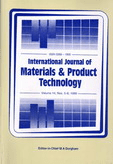
INTERNATIONAL JOURNAL OF MATERIALS & PRODUCT TECHNOLOGY
Advancing Knowledge in Engineering and Product Technology.International Journal of Materials & Product Technology, published by InderScience Enterprises Ltd, is a pivotal platform for scholarly work in the fields of industrial and manufacturing engineering, mechanical engineering, mechanisms of materials, and safety, risk, reliability, and quality. With a rich history spanning from 1986 to 2024, this journal addresses critical advancements and challenges in materials technology, catering to a diverse audience including researchers, industry professionals, and students striving for innovation. Although currently not an open-access journal, it serves as a crucial resource for high-quality, peer-reviewed research, contributing significantly to its ranked quartile positioning in key engineering categories as of 2023. Positioned in the United Kingdom, the journal fosters global discourse and provides essential insights that spur academic debate and practical applications in these rapidly evolving fields. Explore this journal to stay updated with actionable research that shapes the future of materials and product technology.
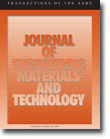
JOURNAL OF ENGINEERING MATERIALS AND TECHNOLOGY-TRANSACTIONS OF THE ASME
Unlocking the potential of materials science for global advancement.JOURNAL OF ENGINEERING MATERIALS AND TECHNOLOGY-TRANSACTIONS OF THE ASME is a premier journal published by the American Society of Mechanical Engineers (ASME), dedicated to advancing the field of engineering materials and technology. With an ISSN of 0094-4289 and E-ISSN 1528-8889, this journal has provided invaluable insights since its inception in 1973. Operating from its headquarters in New York, United States, it serves a global audience of researchers, professionals, and students alike. The journal is recognized for its rigorous peer-review process and its commitment to disseminating high-quality research, currently holding a Q3 quartile ranking across multiple categories including Condensed Matter Physics, Materials Science, Mechanical Engineering, and Mechanics of Materials. With a focus on exploring innovative materials and their applications, it aims to foster collaboration and discovery in the engineering community. Although it is not an open-access journal, it continues to play a vital role in shaping the future of engineering materials research up to 2024. Researchers and practitioners will find in this journal a significant platform to support the development and understanding of engineering materials, making contributions that resonate through academia and industry.
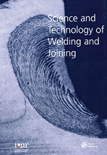
SCIENCE AND TECHNOLOGY OF WELDING AND JOINING
Elevating Standards in Materials Science and JoiningScience and Technology of Welding and Joining, published by SAGE Publications Inc, is a leading academic journal dedicated to advancing knowledge in the fields of condensed matter physics and materials science. With an impressive impact factor that highlights its influence, this journal serves as a premier platform from 1996 to 2024, facilitating innovative research in welding and joining technologies. Situated in the United Kingdom, the journal holds prestigious Q1 rankings in both condensed matter physics and miscellaneous materials science categories, underscoring its commitment to excellence and contribution to the scientific community. As a resource for researchers, professionals, and students alike, it offers insights into the latest developments in the field, ensuring that cutting-edge studies and applications are readily accessible to its audience. Despite not being an open-access journal, its contributions remain invaluable, bridging theoretical advancement with practical implications in welding and materials engineering.
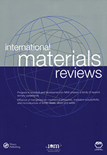
INTERNATIONAL MATERIALS REVIEWS
Elevating Standards in Materials ResearchINTERNATIONAL MATERIALS REVIEWS, published by SAGE Publications Inc, is a leading journal dedicated to the comprehensive analysis of contemporary research in the fields of materials chemistry, mechanical engineering, mechanics of materials, and the study of metals and alloys. With an impressive impact factor and a Q1 ranking across multiple categories such as Materials Chemistry and Mechanical Engineering in 2023, it ranks amongst the top journals for innovative materials research. The journal has a long-standing history since its inception in 1987 and continues to serve as a crucial resource for academics and professionals alike. Although it is not open access, it is renowned for its rigorous peer-review process and its commitment to disseminating high-quality materials science research globally. Researchers, students, and industry professionals benefit greatly from the journal's insightful reviews, both for the advancement of theoretical knowledge and practical applications within the fast-evolving materials field.
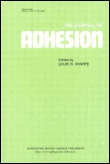
JOURNAL OF ADHESION
Bridging gaps in knowledge with high-impact adhesion research.JOURNAL OF ADHESION, published by Taylor & Francis Ltd, is a distinguished scholarly outlet dedicated to advancing the field of adhesion science. With an ISSN of 0021-8464 and an E-ISSN of 1545-5823, this journal serves as a vital resource for researchers and professionals alike, publishing high-impact research articles, reviews, and technical notes that explore the intricate mechanisms of adhesion across various materials and applications. Spanning from 1969 to 2024, it has established itself as an essential reference point in multiple domains, achieving a commendable Q2 ranking in several categories including Chemistry, Materials Chemistry, and Mechanics of Materials in 2023. Notably, it holds impressive Scopus rankings, reflecting its influence and contribution to both the materials science and engineering communities. The journal promotes a deeper understanding of adhesion phenomena and encourages innovative research, making it a critical platform for students and professionals eager to explore this dynamic field. Subscribers can access the journal through traditional print and electronic formats, reinforcing its commitment to disseminating knowledge while fostering academic collaboration.
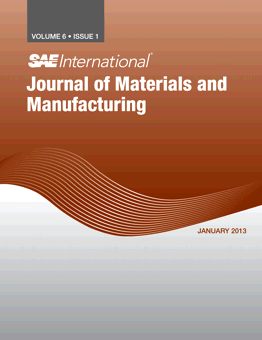
SAE International Journal of Materials and Manufacturing
Advancing the Frontiers of Materials and ManufacturingSAE International Journal of Materials and Manufacturing, published by SAE International, is a leading peer-reviewed journal that focuses on the advancements and research in the fields of materials science and manufacturing engineering. With ISSN 1946-3979 and E-ISSN 1946-3987, this journal is an essential resource for researchers, professionals, and students who are keen on exploring innovative materials and modern manufacturing techniques. Although the journal currently does not offer open access options, its rigorous selection process ensures the publication of high-quality papers that contribute significantly to the knowledge base in the industry. Recognized within the third and fourth quartiles across various engineering categories, including Industrial and Manufacturing Engineering and Mechanical Engineering, the journal provides an impactful platform for disseminating groundbreaking research. With a converged history since 2002 and a comprehensive approach to critical topics in mechanics of materials, it empowers the academic community with vital insights, trends, and methodologies that propel the future of manufacturing excellence.

KGK-Kautschuk Gummi Kunststoffe
Exploring the Frontiers of Polymer ScienceKGK-Kautschuk Gummi Kunststoffe is a prominent journal dedicated to the fields of industrial and manufacturing engineering, materials chemistry, mechanical engineering, and polymers and plastics. Published by DR ALFRED HUTHIG VERLAG GMBH in Germany, this journal has established itself as a vital resource for researchers and professionals involved in the rubber, elastomers, and polymer industries since its inception in 1978. With an emphasis on contemporary advancements and emerging technologies, the journal aims to disseminate cutting-edge research and developments in the understanding of material properties, processing techniques, and applications. While the journal is categorized in the Q4 quartile across multiple disciplines in 2023, it still plays a crucial role in bridging the gap between theory and practical innovation. Researchers, professionals, and students alike are encouraged to contribute to and engage with the latest insights in this dynamic field, fostering collaboration and knowledge sharing to advance applications in industry and academia.

Structural Integrity and Life-Integritet I Vek Konstrukcija
Fostering Global Dialogue on Engineering Integrity.Structural Integrity and Life - Integritet I Vek Konstrukcija is a prominent open-access journal dedicated to advancing the fields of Civil and Structural Engineering, Mechanics of Materials, and Safety, Risk, Reliability, and Quality. Published by the SOC STRUCTURAL INTEGRITY & LIFE, this journal has been disseminating high-quality research since 2001 from its base in Belgrade, Serbia. The journal's commitment to open access ensures that vital research is freely accessible to a global audience, fostering collaboration and innovation within the academic community. With an impressive categorization in the 2023 quartiles, including Q2 in Metals and Alloys and Q3 in related fields, Structural Integrity and Life stands as a vital resource for researchers, professionals, and students striving to enhance understanding and applications in structural integrity and material performance. The journal invites contributions that address critical issues in the field, pushing the boundaries of knowledge and practical applications, and welcomes both empirical studies and theoretical discussions that can drive forward the next generation of engineering solutions.
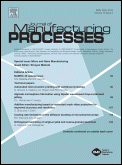
Journal of Manufacturing Processes
Shaping the Future of Manufacturing ProcessesThe Journal of Manufacturing Processes, published by Elsevier Science Ltd, serves as a premier platform for researchers, professionals, and students engaged in the fields of Industrial and Manufacturing Engineering as well as Management Science and Operations Research. With an impressive Q1 ranking across multiple categories for 2023, this journal not only showcases innovative research but also provides insights into strategic management and operational excellence within the manufacturing sector. Covering an extensive timeline from 1999 to 2024, the journal has solidified its position within the academic community, consistently ranking in the top percentile across various Scopus categories. Although it does not offer open access, the journal maintains a commitment to disseminating high-quality, peer-reviewed research that drives advancements in manufacturing processes. Located in the Netherlands, the journal aims to foster collaboration and knowledge sharing among scholars and industry experts alike, making it an indispensable resource for anyone dedicated to the advancement of manufacturing science.
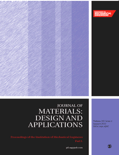
PROCEEDINGS OF THE INSTITUTION OF MECHANICAL ENGINEERS PART L-JOURNAL OF MATERIALS-DESIGN AND APPLICATIONS
Advancing Innovation in Materials Design and EngineeringPROCEEDINGS OF THE INSTITUTION OF MECHANICAL ENGINEERS PART L-JOURNAL OF MATERIALS-DESIGN AND APPLICATIONS is a prestigious academic journal published by SAGE PUBLICATIONS LTD, focusing on the dynamic fields of mechanical engineering and materials science. With an impressive impact factor reflective of its rigorous scholarly contributions, this journal serves as a vital platform for the dissemination of innovative research and practical applications in materials design and engineering processes. Since its inception in 1999 and continuing through 2024, it has maintained a robust reputation, achieving a Q2 ranking in both Materials Science (miscellaneous) and Mechanical Engineering categories, as well as commendable Scopus ranks that place it in the top percentiles of its fields. Located in the United Kingdom, the journal encourages submissions from researchers and professionals who are seeking to advance their understanding of materials applications while fostering interdisciplinary collaboration. Although it currently operates under traditional access terms, the journal prioritizes impactful research that addresses contemporary challenges in design and manufacturing, ensuring that it remains a must-read for anyone invested in the innovations shaping our technological landscape.